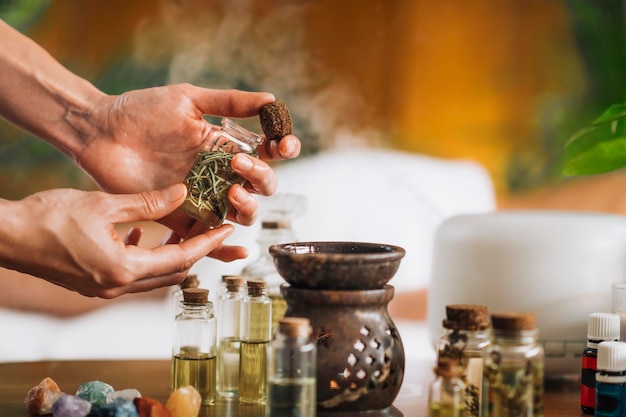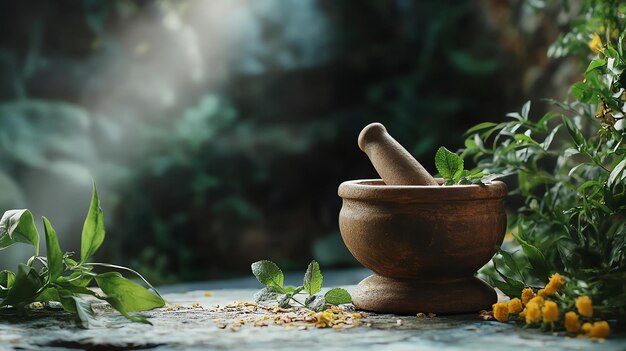Ask Ayurvedic doctor a question and get a consultation online on the problem of your concern in a free or paid mode. More than 2,000 experienced doctors work and wait for your questions on our site and help users to solve their health problems every day.
Ayurvedic Medicine for Malaria: Science, Remedies & Research

Malaria remains one of the most challenging public health threats worldwide. According to the
One such avenue is Ayurvedic medicine for malaria. This age-old holistic system from India integrates diet, herbs, and lifestyle practices to promote well-being. In this article, we delve into what Ayurveda offers concerning malaria prevention and management, the current research supporting (or challenging) these treatments, and how these approaches fit into modern healthcare protocols. While reading, please remember that these insights are not a substitute for professional medical advice. Always consult a qualified healthcare provider for diagnosis, treatment, and guidance on malaria or any other health condition.
Table of Contents
Don't wait or self medicate. Start chat with Doctor NOW
Understanding Malaria: An Overview
Malaria is a mosquito-borne infectious disease caused by Plasmodium parasites, primarily affecting the tropical and subtropical regions of the world. Common symptoms include:
-
High fever and chills
-
Sweats
-
Headaches
-
Nausea and vomiting
-
Muscle aches
If left untreated, severe malaria can lead to life-threatening complications such as anemia, cerebral malaria, and organ failure. Standard treatment protocols generally involve antimalarial drugs like chloroquine, artemisinin-based combination therapies (ACTs), and quinine. Public health initiatives frequently emphasize prevention through mosquito control, insecticide-treated bed nets, and prophylactic medications for those traveling to malaria-endemic regions.
Despite advancements in conventional medicine, challenges such as drug resistance and limited healthcare access in remote areas have led some patients to explore traditional systems like Ayurveda. However, it is essential to approach any alternative therapy with caution, ensuring that conventional treatments are not replaced without sound medical consultation.
Foundations of Ayurvedic Medicine
Ayurveda is a system of medicine that originated in India more than 3,000 years ago. Its core philosophy revolves around balancing three fundamental energies or doshas: Vata, Pitta, and Kapha. When these energies are in equilibrium, an individual is considered to be in optimal health.
Some key principles in Ayurveda include:
-
Holistic Approach: Addressing the mind, body, and spirit.
-
Personalization: Treatments are tailored based on individual constitution or Prakriti.
-
Natural Interventions: Relying on herbs, dietary guidelines, and lifestyle modifications.
-
Preventive Focus: Emphasis on daily routines (Dinacharya) and seasonal regimens (Ritucharya) to maintain health.
Given this foundation, Ayurvedic medicine for malaria often targets not just the parasite but also aims to strengthen the immune system and balance the patient’s doshas. While certain Ayurvedic treatments may offer supportive benefits, they should complement – not replace – the conventional antimalarial regimen.
Ayurvedic Herbs and Remedies for Malaria
Multiple Ayurvedic texts and practitioners suggest a range of herbal remedies for fever and other symptoms associated with malaria. Below are some commonly referenced herbs:
-
Neem (Azadirachta indica)
-
Known for its antimicrobial and anti-inflammatory properties.
-
Sometimes used in decoctions to help reduce fever and cleanse the blood.
-
-
Giloy (Tinospora cordifolia)
-
Renowned in Ayurveda for immunity-boosting effects.
-
Believed to reduce fever and support liver function.
-
-
Tulsi (Ocimum sanctum)
-
Revered as a sacred plant in Indian traditions.
-
Known for its antioxidant and antimicrobial properties, sometimes used to reduce fever and respiratory symptoms.
-
-
Arjuna (Terminalia arjuna)
-
Often used to support cardiovascular health.
-
Contains compounds that may help boost overall vitality, although direct malaria-specific properties need more research.
-
-
Kariyat (Andrographis paniculata)
-
Often called “King of Bitters.”
-
Some studies indicate potential antiparasitic and immune-modulatory properties.
-
-
Black Pepper (Piper nigrum) and Long Pepper (Piper longum)
-
Commonly found in formulas to enhance the bioavailability of other herbs.
-
May help support overall immune function when included in herbal mixes.
-
Common Ayurvedic Formulations
-
Sudarsana Churna: A classical Ayurvedic herbal powder that includes various bitter herbs said to aid in fever reduction.
-
Tribhuvan Kirti Rasa: Often used for severe fevers.
-
Maha Sudarshan Churna: Another popular polyherbal preparation believed to help with fever management and detoxification.
Note: These remedies are typically prepared in specific dosages under the guidance of a qualified Ayurvedic practitioner.
Current Research and Scientific Evidence
Ayurveda’s popularity has spurred numerous studies evaluating the efficacy and mechanisms of various herbs and formulations. Here are some highlights:
-
Neem (Azadirachta indica):
-
A 2016 in vitro study published in the Journal of Parasitic Diseases indicated that Neem leaf extractsshowed antiplasmodial activity. However, human clinical trials are limited, and more rigorous research is needed to confirm its efficacy and safety.
-
-
Giloy (Tinospora cordifolia):
-
According to a review article in Phytotherapy Research (2018), Giloy has immunomodulatory properties and demonstrated fever-reducing potential in animal models. Again, conclusive evidence in human studies for malaria treatment is still lacking.
-
-
Andrographis paniculata (Kariyat):
-
Studies cited in Evidence-Based Complementary and Alternative Medicine suggest andrograholide, the main active compound, may exhibit antiparasitic properties. While promising, such findings necessitate larger human trials.
-
-
Polyherbal Formulations:
-
Limited but emerging clinical research points to potential synergistic effects of combined herbs for fever management and immunity enhancement. However, no large-scale clinical trial conclusively shows an Ayurvedic formula that rivals ACTs (Artemisinin-based Combination Therapies) in efficacy for malaria treatment.
-
Given these points, it is clear that Ayurvedic medicine for malaria may hold promise as a supportive or adjunct therapy. Yet, the consensus from reputable bodies—such as the
Safety, Efficacy, and Guidelines
Key Considerations
-
Quality Control: Adulteration and contamination can occur with some herbal products. Always opt for standardized, high-quality formulations.
-
Drug Interactions: Some herbs may interact with conventional antimalarials or other medications. For example, herbs that modify liver enzyme activity could alter drug metabolism.
-
Side Effects: While considered “natural,” Ayurvedic herbs can still produce side effects such as allergic reactions, gastrointestinal disturbances, or toxicity if used improperly.
-
Not a Replacement: Ayurvedic remedies should never replace evidence-based antimalarial drugs but can potentially serve as a complementary approach.
Expert Consensus
-
WHO’s Malaria Policy Advisory Committee: Recommends early diagnosis and prompt treatment with proven antimalarial drugs.
-
National Institutes of Health (NIH): Encourages caution and more research on complementary and alternative therapies, including Ayurveda, to validate safety and efficacy.
Lifestyle Recommendations in Ayurveda
Beyond herbs, Ayurveda emphasizes holistic lifestyle changes to bolster immunity and overall health:
-
Balanced Diet
-
Favor light, warm, and easily digestible meals during fever episodes.
-
Incorporate immune-supportive spices like turmeric, ginger, and black pepper.
-
-
Adequate Rest
-
Ensure sufficient sleep to allow the body to recuperate.
-
Short power naps may help during high-fever episodes.
-
-
Stress Management
-
Techniques like pranayama (breathing exercises) and yoga can help reduce stress, indirectly supporting the immune system.
-
-
Personal Hygiene
-
Keep your surroundings clean and ventilated to minimize mosquito breeding grounds.
-
Practice daily cleansing and ensure you use mosquito repellents and bed nets when in endemic areas.
-
Practical Tips for Integrating Ayurveda in Malaria Care
-
Consult Professionals: Always talk to both a licensed physician and a qualified Ayurvedic practitioner before starting any herbal supplement.
-
Start Slowly: If approved by your healthcare team, begin with low doses of herbs to observe any adverse reactions.
-
Monitor Symptoms: Keep track of fever patterns, body aches, and overall well-being.
-
Follow Conventional Protocols: Continue to take prescribed antimalarial medications as directed.
-
Stay Informed: Regularly check official sources (e.g., WHO, CDC) for travel advisories and treatment updates.
Frequently Asked Questions (FAQ)
1. Can Ayurvedic treatments cure malaria on their own?
No. While certain Ayurvedic herbs have shown antimalarial potential in laboratory settings, there is no substitute for standard antimalarial drugs such as artemisinin-based combination therapies. Ayurveda may serve as a complementary approach, but always seek professional medical guidance.
2. Is it safe to use herbal remedies along with conventional malaria medication?
It can be, under proper guidance. Some herbs may interact with conventional medications, so it’s crucial to inform your healthcare providers about any supplements you plan to take.
3. How do I know if an Ayurvedic remedy is of good quality?
Look for standardized extracts and certifications from reputable organizations. Avoid over-the-counter products from unknown brands, and consult an Ayurvedic practitioner for personalized advice.
4. Can children and pregnant women use Ayurvedic medicines for malaria?
They require special medical supervision. Many herbs may not be safe during pregnancy or for young children. Always consult a pediatrician or obstetrician along with an Ayurvedic expert.
5. Are there side effects to these herbal preparations?
Yes, even natural herbs can have side effects, ranging from mild stomach upset to more serious reactions. Proper dosage, quality, and professional supervision are important.
Conclusion and Call to Action
Ayurvedic medicine for malaria has attracted growing interest as individuals explore complementary approaches to bolster immunity and address persistent malaria symptoms. Emerging research on herbs like Neem, Giloy, and Andrographis paniculata shows encouraging signs of antiplasmodial and immunomodulatory actions, yet robust clinical trials are needed to establish definitive efficacy and safety.
Modern medicine remains indispensable for malaria management, as recommended by the WHO and CDC. However, combining carefully selected Ayurvedic interventions with conventional treatments—under professional supervision—may offer a more holistic health strategy. If you’re considering Ayurveda for malaria prevention or treatment, be sure to consult both an Ayurvedic specialist and a qualified physician to ensure a balanced, evidence-based approach.
Share Your Thoughts
-
Have you tried any Ayurvedic remedies for malaria?
-
Are you aware of other natural interventions that support malaria care?
-
Do you have questions about integrating Ayurveda into standard treatment protocols?
Join the Conversation: Share your experiences, ask questions, or subscribe to our newsletter for the latest healthcare updates. Your insights can help others navigate the complexities of using Ayurvedic medicine for malaria safely and effectively.
Important Disclaimer
This article provides general information and does not serve as a substitute for professional medical advice. Always seek the counsel of your physician or another qualified health provider regarding any medical condition or treatment. If you suspect you have malaria, immediate professional medical evaluation and care are crucial.
References:
-
World Health Organization (WHO) –
Malaria -
Centers for Disease Control and Prevention (CDC) –
Malaria -
Various peer-reviewed journals (e.g., Journal of Parasitic Diseases, Phytotherapy Research) for research on Neem, Giloy, Andrographis paniculata, etc.



